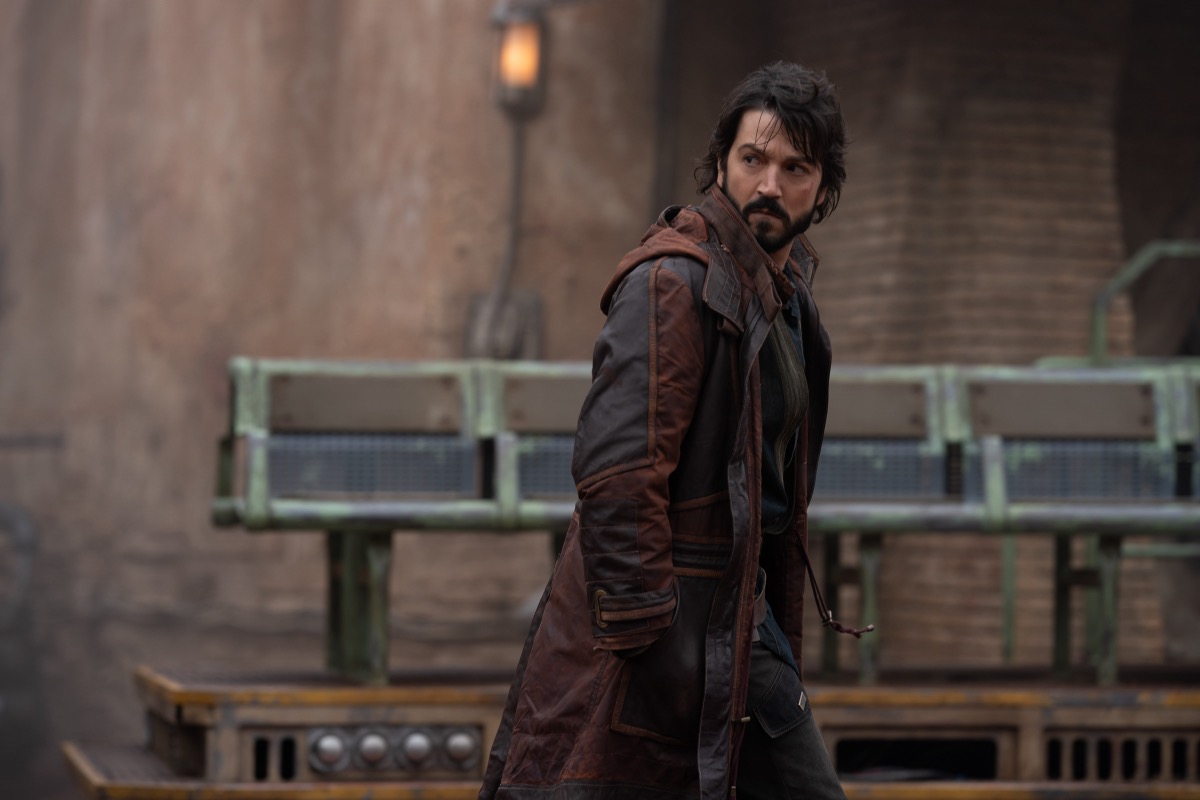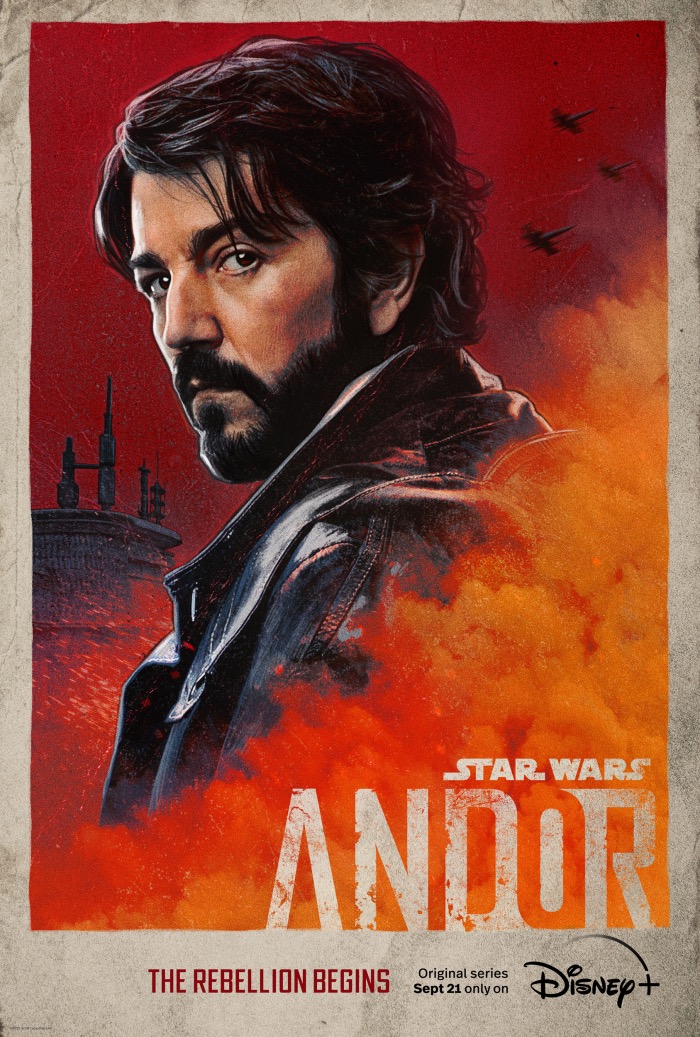

Diego Luna stars as Cassian Andor in Lucasfilm’s ‘Star Wars: Andor’ on Disney+. (Courtesy of Lucasfilm)
When Diego Luna first appeared as Cassian Andor in 2016’s Rogue One, his accent made headlines. It was so validating for many immigrants to hear someone who sounds like them get the hero treatment in the Star Wars franchise. For once, speaking two languages (as having a “foreign” accent implies) wasn’t being portrayed as a sign of stupidity or even difference — it was just part of the texture of the world, the specifics of a character.
Beginning Wednesday, Luna returns as Cassian in Star Wars: Andor, the latest Disney+ series.
“Now we’re going to understand why he has such a different accent than everyone else,” Luna told Latino Rebels about how his character speaks. “That diversity of accents that you find in Rogue One, you will still find it here. And why is because this is a community of people who have been moving, trying to find freedom, trying to find an opportunity.”
That may sound particularly Latinx to some, but the question of whether Cassian is Latino is a thorny one. Yes, Luna is Mexican born and raised, representing proudly wherever he goes. And as audience members, we bring our understanding of race and ethnicity into Star Wars, as surely do the writers, producers, and casting directors who put together these elaborate worlds.
But there are no Latinx people in space. I repeat: There are NO Latinx people in space! Or at least not in Star Wars, not in Middle Earth, and not in any of the sci-fi universes that don’t have a direct connection to Earth as it exists today.
‘Latinx’ is a geopolitical identity based on where on this planet you’re from. And not just a specific continent, but also a moment in time, namely post-conquest to the present. How far that “present” will go, we don’t know. We’re debating Latinidad as a useful concept all the time, so it might go away.
Instead of our current understanding, these fantasy universes have their own racecraft, dividing us between rebels, imperial cogs, and agnostics, for example (or elves, hobbits, dwarfs, and men, or Earth, Mars, and the Belt, or humans and Cylons, and so on). Theoretically, these new power dynamics allow us to see just how flimsy our racial hierarchy really is, how it’s not an inalterable fact but rather the ever-changing politics of our current moment.
So when asked if Cassian is Latino, Luna demurs, saying, “I don’t what that means.” Which is the right answer because there’s no singular defining Latinx experience, nothing that would take Latinx people all the way to a galaxy far, far away. To pretend otherwise would be to essentialize us, reduce us to a set of traits we don’t all share, erasing both our differences and our shared understanding of where we stand in this world, today.
Instead, Luna says, “there’s something human about Cassian.” And then he goes on to praise the universality of the show, saying, “I hope [audiences] connect emotionally with this journey… At the end, it is the story of real people, of mothers and sons, of friends, of lovers.”
He sees Andor as allowing “audiences the opportunity to mirror themselves in these characters. Yes, [you] get the excitement and adventure and action that Star Wars brings, but it also brings the emotional consistency [of] good storytelling.”


Courtesy of Lucasfilm
Back on Earth, that mirroring gets a bit complicated as media too often pretends someone’s racial and ethnic identity defines their trajectory. On that front, Luna says, “I am very excited about the example that Lucasfilm is sending,” adding that “it’s not about ticking boxes” for the studio but rather making sure “the stories are complex enough that they feel real.”
Which is a lovely sentiment, although it remains slightly curious that Cassian’s accent needs an explanation at all when so many Anglo characters can speak with varying accents (American, British, etc.) without anyone batting an eye.
But then again, perhaps there is something especially Latinx about the storytelling in Andor. After all, what’s more Latinx than the need to explain your identity, to grapple with the implications of your immigration story, to qualify your ni de aquí, ni de allá background?
Even if there are no Latinx people in space.
***
A writer and activist, Cristina Escobar is the co-founder of latinamedia.co, uplifting Latina and gender non-conforming Latinx perspectives in media. She’s a member of the Latino Entertainment Journalists Association and writes at the intersection of race, gender, and pop culture. Twitter: @cescobarandrade



[…] post EXCLUSIVE: Diego Luna Talks to Latino Rebels About Andor’s Latinidad appeared first on Latino […]
[…] plática con Latino Rebels, el artista afirmó que “ahora vamos a entender por qué tiene un acento tan diferente al de los […]